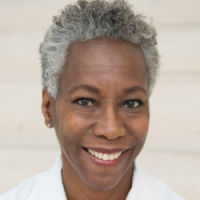One of the most self-destructive things that we can do is to compare ourselves to other people.
We look at them and ask, “Why am I not as successful, thin, quick witted, wealthy, motivated or organized as they are?” We look at ourselves and decide that we are, in at least that one area, an abject failure.
Yet what we are doing is comparing our insides, our internal experience, to the outside presentation of someone else. It is such a harsh way to treat ourselves and yet most of us do this at least some of the time.
I realized the fallacy of this when I started to learn more about the family of one of my childhood friends. As a child and young teen I thought her family was perfect. They seemed to do all the things I wished mine would but didn’t. They went to church, they had huge family picnics, they seemed so wholesome.
When I was talking with my friend as an adult I realized that her family’s image hid the same kind of dysfunction that many families have, mine included. I was comparing the image of their family to the reality of mine. This is a common experience.
As children, comparing ourselves to others is normal—not helpful—but normal. Doing it as an adult is far more serious because we are more likely to act on these feelings in ways that are harmful. As children we tend to sigh and say, “Oh I wish my family was more like hers,” and go on with our life. As adults we are more likely to say, “What’s wrong with me that I’m not as successful as he is?” and beat ourselves black and blue for our imagined failings.
Comparison is insidious and soul destroying.
Comparison robs us of the joy that could be found in our accomplishments, our relationships and in working toward our dreams. Comparison tells us that nothing we do is ever good enough because nothing we do will ever be perfect and, let’s face it, there will always be someone out there who looks like they have it all together.
During the three years I spent living in a meditation ashram, one of the things I learned was to keep my focus on myself. Not in a navel-gazing, self-absorbed way but in a tend-our-own-garden way. When we focus on the story that we are living—as its own important story not to be compared to another’s, but to be lived deeply and fully—we put the focus back on the only thing we control: our own actions.
When we compare our insides to the outsides of others we wind up putting our energy into things that won’t serve us because they aren’t in concert with our lives, our values and our experiences. When we compare our insides to the outsides of others we stop trusting our own judgement and listening to our inner wisdom.
Comparison makes us take actions that aren’t based on our unique way of moving through the world.
Acting on comparison makes us do exactly what has worked for someone else but doesn’t necessarily have anything to do with who we are and how we work in the world. Comparison makes us give away our power to the image we have of another. Not their reality, their image.
The other side of comparison is to making ourselves the “better” person in the deal.
We compare and look down at someone else. We decide that we know what their life is like and so we decide that we are fit to judge them. That is just us being insecure, uncertain of our own decisions and looking for a way to soothe the anxiety that is sometimes just a part of life.
While judging others can feel good in the moment, it ultimately just reinforces our own insecurities as we assume (probably correctly) that we are being judged by others. There is absolutely nothing we can do about the judgements that others have of us. Nothing.
What we can do is move ourselves out of that way of comparison. We can make a conscious choice to stay focused on what we are doing, what we are creating and the relationships we are nurturing. We can decide that the best choice we can make is to put our attention on what we can control.
Your insides versus their outsides?
That is never a fair fight. So the next time you find yourself comparing your inner experience to someone’s external presentation, slow down and consider how unfair you are being to both yourself and that poor person you just put on a pedestal.
Then get back to focusing on your own life, where your true power lies.
~
Author: Omkari Williams
Image: State Library of New South Wales
Editor: Ashleigh Hitchcock; Nicole Cameron












Read 0 comments and reply